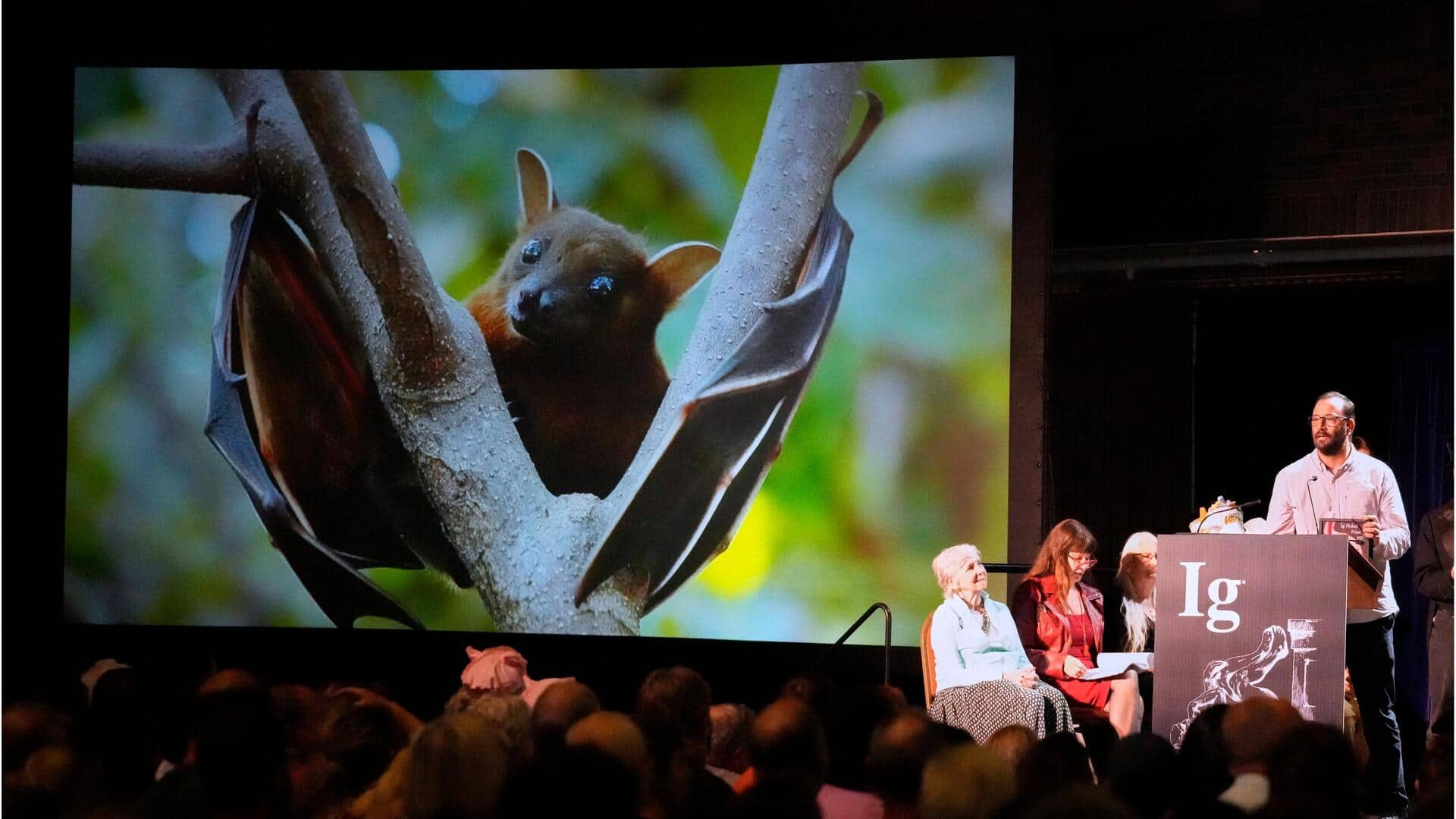
Pizza-loving lizards to alcoholic bats: Bizarre research wins Ig Nobel
What's the story
The 35th annual Ig Nobel Prize awards, a celebration of bizarre yet thought-provoking scientific achievements, took place at Boston University. The event was also streamed online. This year's ceremony focused on "digestion," with guest speakers like Dr. Trisha Pasricha, who explored the connection between smartphone use on toilets and hemorrhoids. A mini-opera titled "The Plight of the Gastroenterologist" was also performed during the event.
Prize winners
Other unusual research topics recognized by Ig Nobel Prizes
The Ig Nobel Prizes, awarded by real Nobel laureates, recognized a range of unusual research topics. These included painting cows with zebra stripes to reduce fly bites and pizza preferences among different lizard species. Other winners were William B. Bean, who won posthumously for documenting his fingernail's growth over 35 years, Julie Mennella and Gary Beauchamp, who studied garlic consumption's impact on nursing babies, and Marcin Zajenkowski and Gilles Gignac, who investigated narcissists' reactions to being told they're intelligent.
Diverse studies
Research in chemistry and engineering
The Ig Nobel Prizes also honored innovative research in chemistry and engineering. Rotem Naftalovich, Daniel Naftalovich, and Frank Greenway won the chemistry prize for their study on eating Teflon to increase food volume without adding calories.In engineering design, Vikash Kumar and Sarthak Mittal explored how foul-smelling shoes impact the experience of using a shoe rack.
Unique research
Study on how alcohol affects flying bats' echolocation abilities
The aviation prize was awarded to Francisco Sanchez, Mariana Melcon, Carmi Korine, and Berry Pinshow for their study on how alcohol consumption affects bats' flying and echolocation abilities. The physics prize went to a team that studied the clumping of pasta sauce. Carly York, an associate professor of biology at Lenoir-Rhyne University in Hickory, North Carolina, said these winners fulfill their goal of making people laugh and then think.